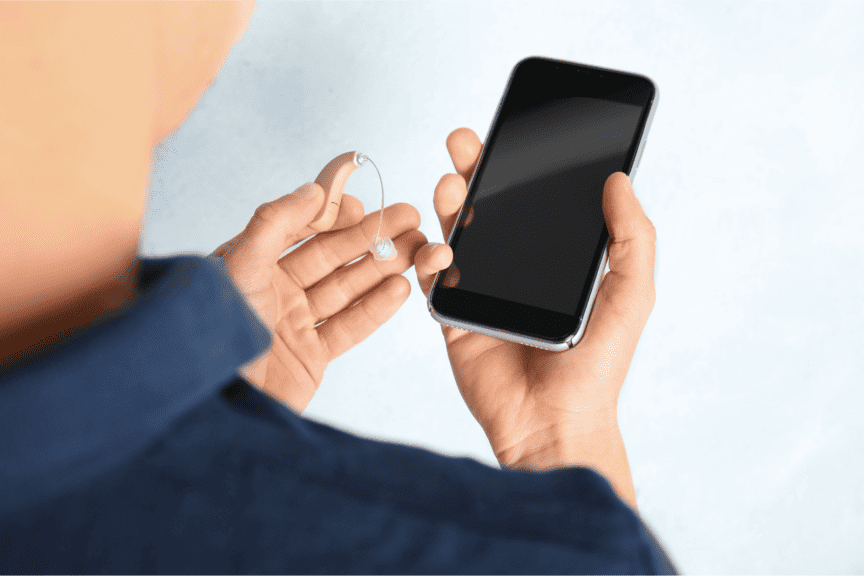As an audiologist, I am keenly aware of the profound impact hearing loss can have on an individual’s life. However, I am also thrilled to share the remarkable advancements in hearing loss prevention, diagnosis, and management that have emerged in recent years. In this article, we will explore the importance of early detection, delve into the latest breakthroughs in hearing aid technology, and discuss the value of adapting to your new hearing aids.
The Significance of Early Detection
The journey to better hearing often begins with early detection. While hearing loss is a common age-related concern, it can affect individuals of all ages due to various factors such as genetics, noise exposure, and medical conditions. One crucial message to convey is that early detection is key to effective management.
Recent research has underscored the importance of regular hearing screenings, not only for those who suspect they may have hearing loss but for everyone. Even mild hearing loss can lead to social isolation, cognitive decline, and reduced quality of life. The sooner we detect and address hearing issues, the better we can mitigate these potential consequences.
Cutting-Edge Diagnostics
Advancements in diagnostic tools and procedures have transformed our ability to assess and understand hearing loss. Audiologists now have access to state-of-the-art technology that allows for highly accurate and comprehensive evaluations of a patient’s hearing profile.
One notable innovation is the use of otoacoustic emissions (OAE) and auditory brainstem response (ABR) testing. These non-invasive techniques can identify hearing problems in infants and young children, ensuring early intervention and a better prognosis for their auditory development. Additionally, advanced imaging techniques like functional MRI (fMRI) help us map the brain’s response to auditory stimuli, offering valuable insights into the neural aspects of hearing loss.
The Evolution of Hearing Aid Technology
Perhaps the most exciting development in the field of audiology in recent years is the rapid evolution of hearing aid technology. Gone are the days of bulky, conspicuous hearing aids that amplify all sounds indiscriminately. Modern hearing aids are discreet, stylish, and equipped with cutting-edge features that can significantly improve your listening experience.
Directional microphones, noise reduction algorithms, and speech enhancement technologies work together to filter out background noise and focus on the sounds you want to hear. This means you can engage in conversations in noisy environments, enjoy music with clarity, and participate in social activities with confidence.
Connectivity has also become a hallmark of contemporary hearing aids. Many models can sync with your smartphone, allowing you to adjust settings, stream phone calls, and even listen to music directly through your hearing aids. This integration with everyday technology empowers you to stay connected with loved ones and fully engage in the digital age.
Adapting to Your New Hearing Aids: Why It’s Worth the Effort
Transitioning to life with hearing aids may seem daunting at first, but the benefits far outweigh any initial challenges. Here’s why adapting to your new hearing aids is a worthwhile endeavor:
Improved Quality of Life:
Studies have consistently shown that individuals who embrace hearing aids experience a significant improvement in their overall quality of life. From stronger relationships to enhanced job performance, better hearing positively influences every aspect of your daily life.
Cognitive Health:
There is a growing body of evidence linking untreated hearing loss to cognitive decline and an increased risk of conditions like dementia. By addressing your hearing loss with hearing aids, you can help maintain your cognitive function and mental well-being.
Social Engagement:
Hearing loss can lead to feelings of isolation and withdrawal from social activities. Hearing aids enable you to reconnect with your friends and family, enjoy social gatherings, and participate fully in life’s experiences.
Safety:
Auditory cues are essential for safety in many situations, such as crossing the street or hearing alarms. Hearing aids provide you with the ability to stay aware of your surroundings, reducing the risk of accidents.
Personal Growth:
Adapting to new hearing aids can be a journey of personal growth and resilience. It allows you to overcome challenges and embrace change, ultimately leading to increased confidence and self-esteem.
In conclusion, the world of audiology has witnessed remarkable progress in recent years, from early detection methods to the rapid evolution of hearing aid technology. These advancements underscore the importance of addressing hearing loss early, as doing so can significantly enhance your quality of life.
Adapting to your new hearing aids may require patience and persistence, but the rewards are immeasurable. Improved communication, cognitive health, and social engagement are just a few of the benefits you can expect. By taking this step, you are not only investing in your hearing but also in your overall well-being. Embrace the technology available to you, and let it empower you to lead a richer, more fulfilling life. Your journey to better hearing starts today, and the future has never sounded brighter.

